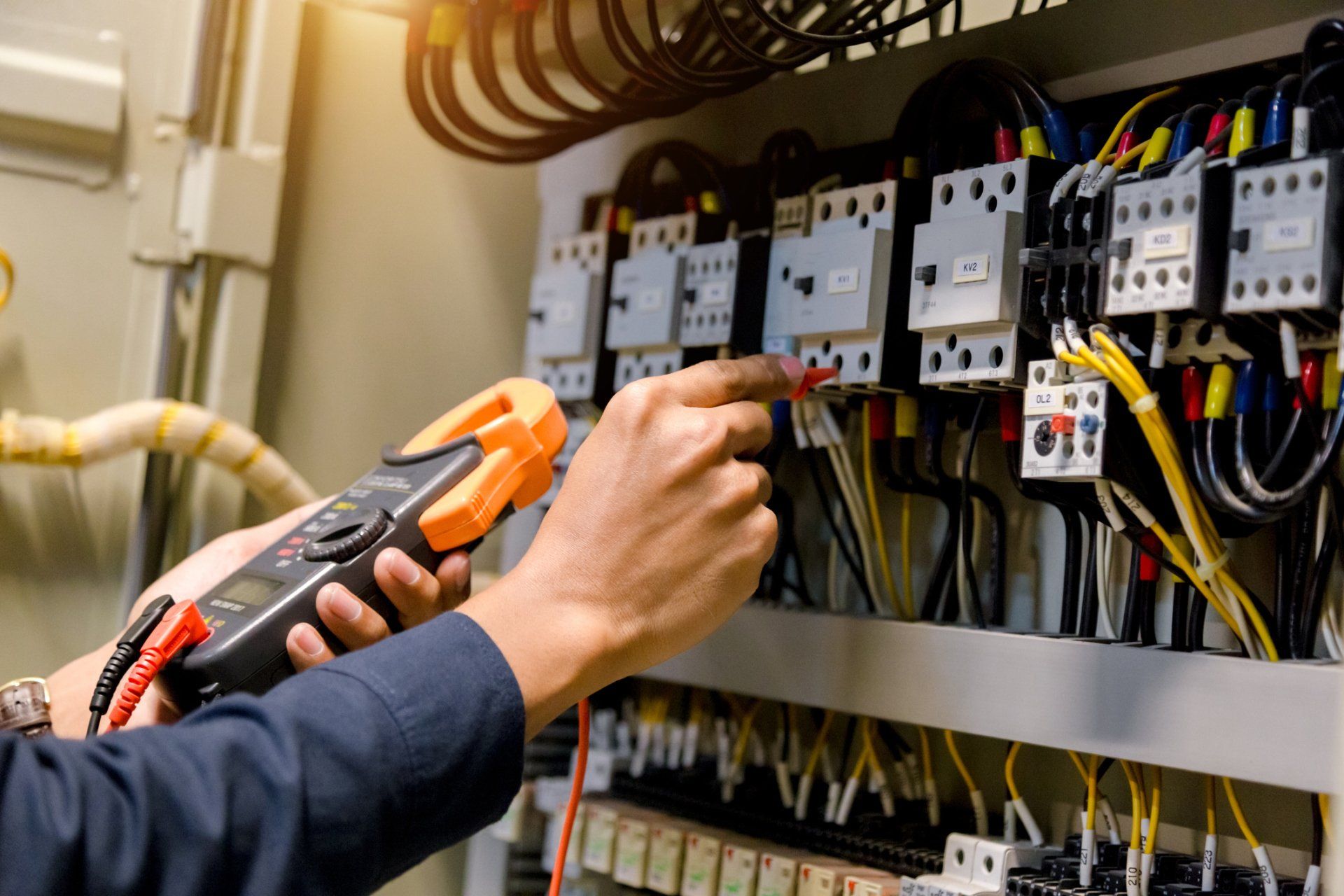Hire an Electrician for These Summer Home Improvement Projects
Do you have a long list of summertime home improvements? If you're not sure whether you need to hire an electrician to complete these projects, take a look at the top home improvement projects that also require electrical upgrades.
Air Conditioner Installation
A summer AC replacement or new installation may require you to reevaluate your home's electricity needs. Central air conditioners have high energy requirements. According to the U.S. Department of Energy, the average residential central AC system uses 2,000-plus kilowatt-hours of electricity annually. If your home isn't wired correctly, you'll need a professional upgrade before the HVAC installer arrives.
Given the energy usage of air conditioners, does every homeowner need to upgrade their home's electrical system? The answer depends on:
- The type of air conditioner . A new central AC system will use more electricity than a smallsized window unit.
- The air condoner's voltage . Higher voltage air conditioners draw more amps of power. If the outlets or wiring in your home doesn't match the voltage and amp needs, you'll need an electrical upgrade.
- Your home's existing electrical system . If you plan to replace your central AC with a similar model, chances are you have the right wiring to supply the system. But if you have an older system or older wiring, your home is more likely to require an upgrade.
If you're not sure what your electrical system can handle, talk to a licensed electrician. The electrician can inspect your home and recommend changes or upgrades. A professional inspection and electrical installation reduces safety risks and increases the likelihood your new air conditioner will work at peak efficiency.
Kitchen Remodel
Is your kitchen due for an upgrade? Before the demolition begins, make sure you have the electrical capabilities necessary. Electrical issues you could confront before or during a kitchen remodel include:
- GFCI outlets . Ground fault circuit interrupters are important electrical devices that can prevent shocks - especially in a wet kitchen environment. If your home has non-GFCI outlets near the sink area, you'll need a professional to install this type of receptacle replacement.
- Appliance circuits . Newer or larger appliances have increased energy needs. If you don't have at least a dedicated 20-amp, 120-volt circuit for the refrigerator; a 50-amp, 240-volt circuit for the range; or a 20-amp, 120-volt circuit for the microwave, the kitchen requires an upgrade.
- Code issues . Does your kitchen's wiring meet local building codes? If you have an older home, it may not.
A licensed electrician can evaluate the existing wiring and compare it to what local building codes require. If the wiring is out of code or doesn't meet the electrical needs of new appliances or kitchen lighting, the professional will need to upgrade the system.
Laundry Room Changes
Do you plan to upgrade your laundry room or area? If you need to replace your washer and dryer, you may also need to:
- Upgrade washer wiring . You can't plug your washer into any outlet. This major home appliance requires a 20-amp, 120-volt circuit and a GFCI receptacle.
- Upgrade dryer wiring . Like the washer, a clothes dryer also has special electrical needs. An electric dryer has a four-pronged plug and needs a 120/240-volt receptacle. A gas dryer requires 120 volts.
- Upgrade lighting . If you plan to convert an unused basement or similar area to a fully functioning laundry room, you may need new lighting. A professional can add wiring and install overhead or wall lights.
Along with these upgrades, you may also need an electrician to install GFCI receptacles. Like the kitchen, the laundry room is a damp area with an increased shock risk.
Are you ready to upgrade your home's electrical system? Contact Express Electrical Services for more information.

